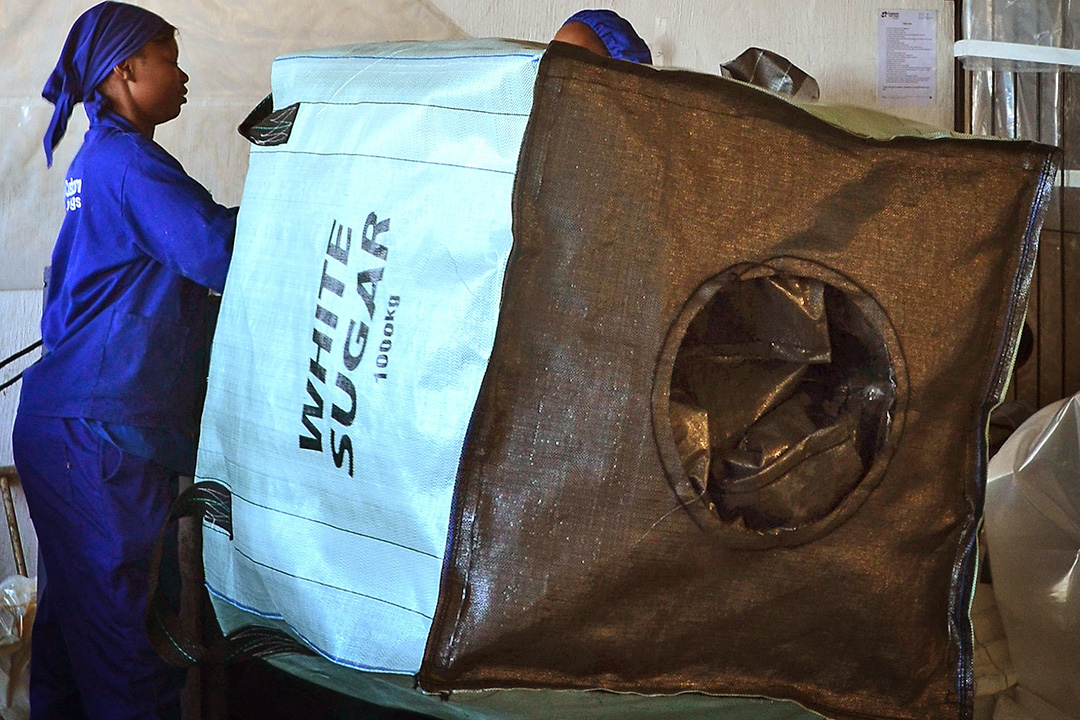Ensuring the safety and quality of produce along the supply chain is crucial for food companies in South Africa. This includes the important areas of transportation and storage, where food-grade bulk bags (FIBCs) are essential. However, figuring out the legality might be difficult because of the restrictions that apply to these packaging products.
This article will give you the information you need to make sure your food-grade bulk bags adhere to laws and industry best practices. Custom Bulk Bags is a well-known South African manufacturer of FIBCs. We manufacture up to 3.5 million bulk bags per year and our products can safely hold between 500kg and two tonnes of material per bag.
Benefits of food-grade bulk bags
Food-grade bulk bags are large, flexible containers made especially for the transportation and storage of food items. Usually made of food-grade, inert polypropylene that doesn’t absorb toxins into the contents, they are sturdy and safe to use. For food producers, FIBCs have various benefits, including cost-effectiveness – FIBCs are a more affordable option for bulk storage and transportation when compared to rigid containers.
Foods are protected during handling by FIBCs since they are robust and tear-resistant. Their cubic shape enables effective use of space in storage facilities and during transit, as bulk bags can be easily stacked on top of one another. To accommodate a range of food products and volumes, FIBCs can be ordered in a variety of sizes and configurations.
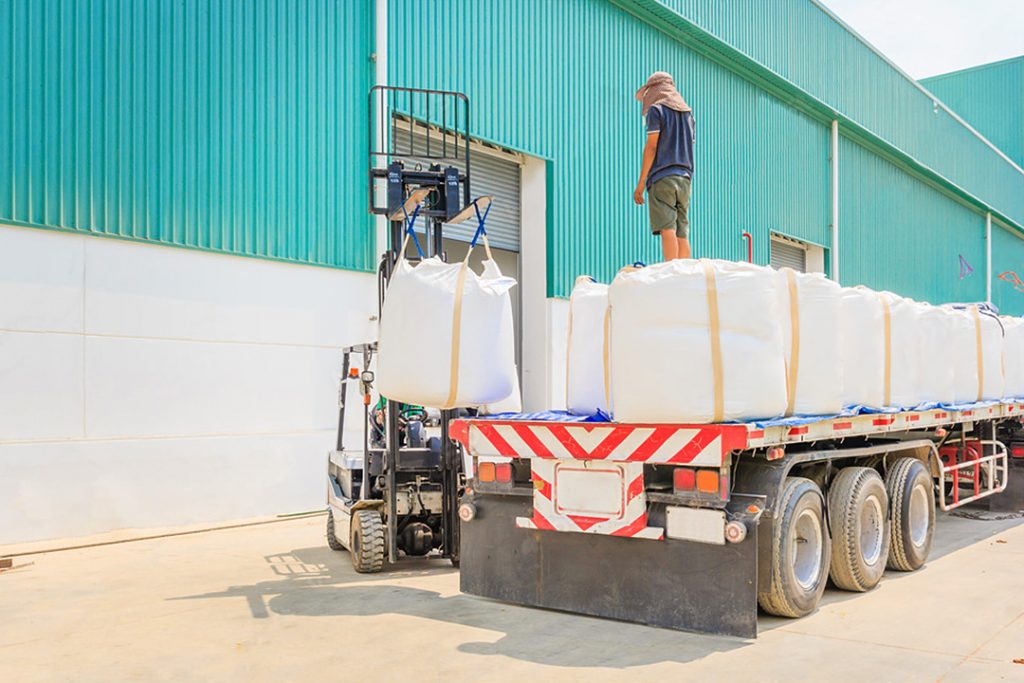
Regulations in South Africa for food-grade FIBCs
The following laws and guidelines must be adhered to by food producers that use bulk packaging in South Africa:
1. Act 54 of 1972, the South African Foodstuffs, Cosmetics and Disinfectants Act: This act creates the legislative foundation for guaranteeing food safety in South Africa and is supervised by the Department of Health. Although it does not specifically address FIBCs, it establishes general guidelines for materials used in food packaging. These guidelines place a strong emphasis on the requirement that packing materials not impair the food’s safety or quality.
2. SANS Standards: For a variety of areas related to food production and packaging, the South African National Standards (SANS) offer more detailed recommendations. Consider the following pertinent SANS standards:
- SANS 10003: The Code for Packaging – The general specifications for the labelling and marketing of food packaging materials are outlined in this code. It highlights how crucial it is to accurately and clearly identify products with information about their intended usage as well as any packaging limits.
- SANS 10015: Food Packaging Applications Specification for Polypropylene Homopolymer – The precise specifications for polypropylene used in food packaging applications are described in this standard. To guarantee food safety, FIBCs made in South Africa with polypropylene should follow this standard.
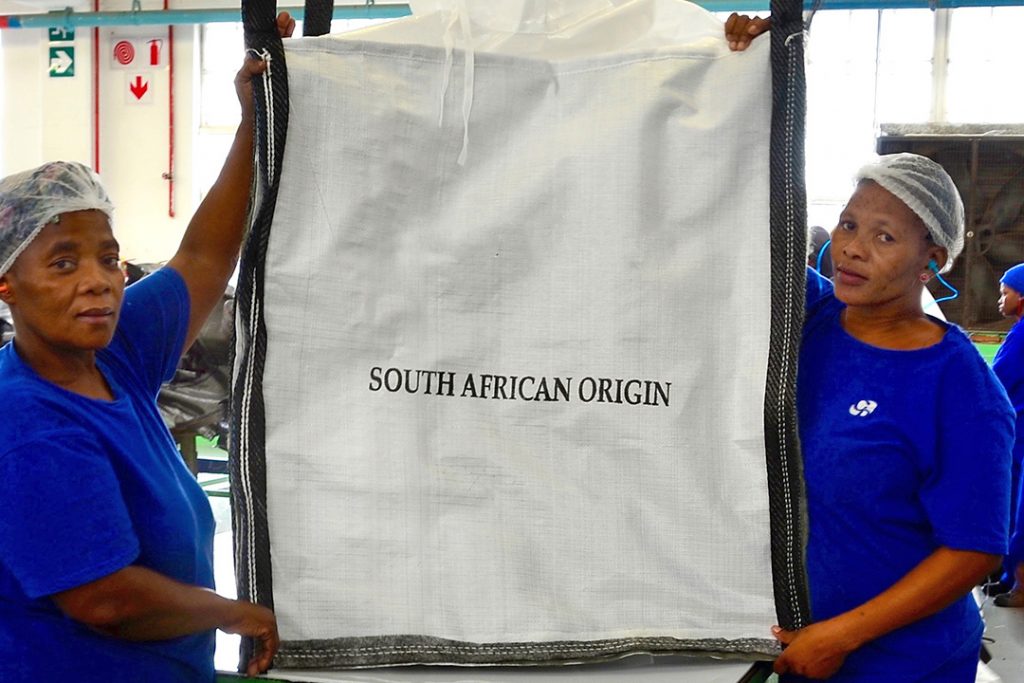
3. Industry Best Practices: Adhering to industry best practices is essential for responsible food production, even in the absence of restrictions. Be sure to purchase FIBCs from reliable manufacturers. Seek out suppliers that have a history of following food safety laws and employing premium raw materials that are safe for food items.
The needs for strength, ventilation, and moisture control differ according to the type of food product you will store or transport in FIBCs. You will be able to choose the best bulk bag type for your goods by speaking with a trustworthy FIBC supplier like Custom Bulk Bags.
Remember to always keep your hands clean when handling food items. To avoid contamination, FIBCs need to be handled with the same care as any other surface that comes into contact with food. This entails filling, cleaning, and disinfecting FIBCs before storing them in dry, clean spaces.
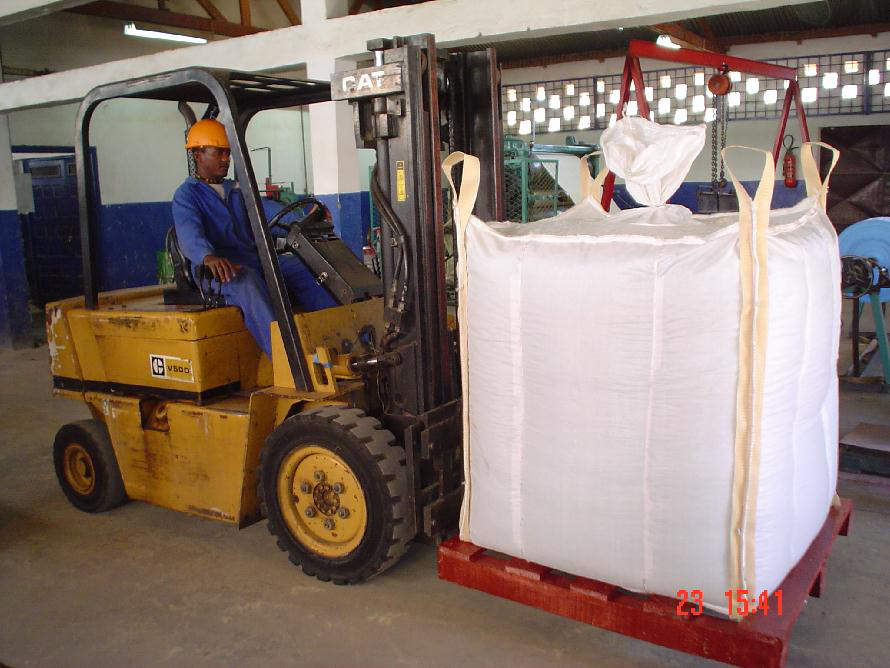
International guidelines for food handling
Although South African legislation offers a robust framework, a number of global norms also come into play:
1. Regulations of the Food and Drug Administration (FDA) (USA): It is essential for South African food producers who export to the US to be aware of FDA laws regarding materials that come into contact with food. Food packaging materials, such as FIBCs, are required by the FDA to adhere to certain safety standards.
2. The industry-driven Global Food Safety Initiative (GFSI) sets food safety standards that are accepted by a large number of foreign food manufacturers and retailers. Following the GFSI guidelines shows a commitment to food safety at every stage of the supply chain, even if it isn’t a regulation in and of itself. This includes choosing suitable packaging materials, such as food-grade FIBCs.
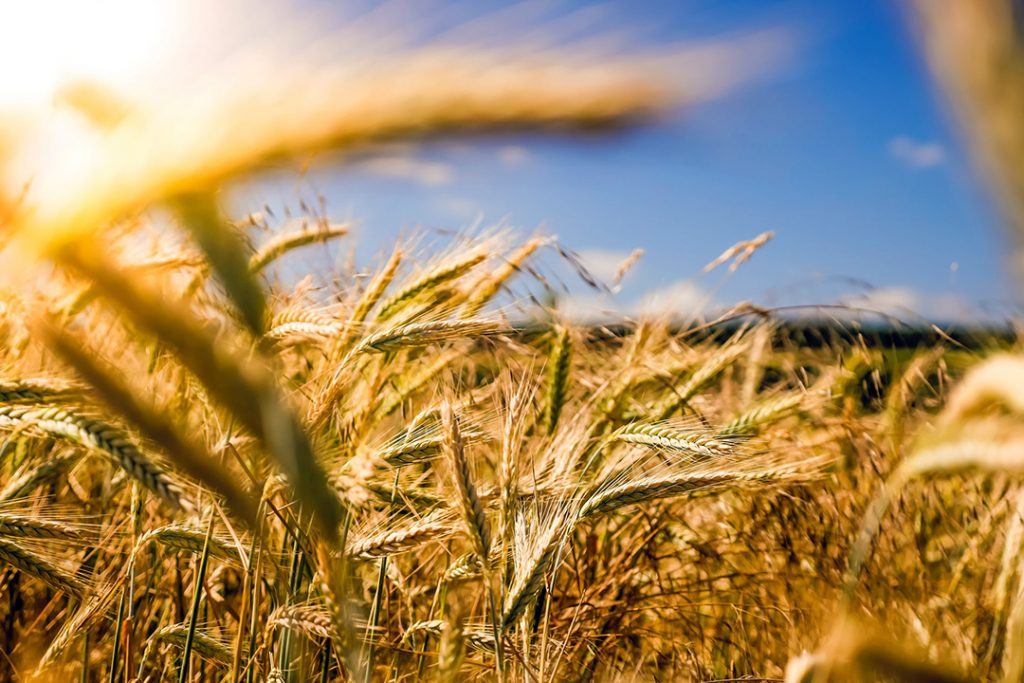
Extra things to think about for food producers
1. Labeling: Make sure the following details are prominently displayed on the labels of your food-grade FIBCs:
- Contents identification – This lists the food items kept in the FIBC.
- Manufacturer’s information – This contains the FIBC manufacturer’s name and contact information.
- Batch or lot number – This enables traceability in the event that the FIBC has any problems.
- Food-grade classification – Make sure the FIBC is labelled “food-grade” to prevent misunderstandings.
- Any unique handling guidelines – These could be restrictions on weight, guidelines for stacking, or specifications for storage.
2. Material Safety Data Sheet (MSDS): Ask your FIBC provider for an MSDS. This paper ensures compatibility with your food product by providing technical and safety facts on the FIBC material.

3. Frequent inspections: Check your FIBCs frequently for indications of contamination, wear and tear, or damage. Food safety should not be jeopardised by discarding damaged FIBCs.
Using food-grade bulk bags in your food production operation may be made safe and compliant by knowing and abiding by international standards, industry best practices, and South African legislation. At Custom Bulk Bags, we’re dedicated to offering food companies in South Africa premium, food-grade FIBCs that adhere to the highest safety regulations.
We have a wide selection of FIBCs to meet your unique requirements, and our team of professionals is always happy to offer advice on which FIBC type is best for your food product. For more information about our bulk bags or to get advice on the ideal design specifications, please contact us today.
___
Custom Bulk Bags is a leading South African manufacturer of woven polypropylene bags for various industries, such as mining, chemicals and food. We are able to produce over 3.5-million bulk bags per year, keeping our customers in stock at all times. Our bags adhere to the highest levels of quality as a result of our stringent in-house testing and quality control programmes.
Custom Bulk Bags holds ISO 9001 certification and we currently have a number of UN-certified designs. We are a Level 2 B-BBEE manufacturer and supplier and fall under the ownership structure of Deneb Investments Limited. For more information on our products, contact sales@custombulkbags.co.za. Follow us on Facebook, LinkedIn and Instagram for our latest news and industry insights.
